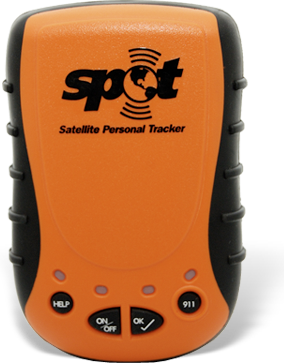 I was reminded once again this past weekend how difficult communication can be while living or hiking in the mountains. Bryon and his friends from the midwest do a “Boys Backpack” once a summer, usually somewhere in the Rocky Mountains. Bryon is an amazingly strong hiker, and can hike at very fast pace — it doesn’t hurt that he also lives at 8200 feet. His friends, for the most part, are city residents, and live around sea level. It seems every year they plan a very ambitious backpack that to me, seems very unreasonable for people coming from sea level. This year was no different, when they planned a 5-day backpack in Rocky Mountain National Park crisscrossing the Continental Divide. Sure enough, on the first day out, problems arose.
I was reminded once again this past weekend how difficult communication can be while living or hiking in the mountains. Bryon and his friends from the midwest do a “Boys Backpack” once a summer, usually somewhere in the Rocky Mountains. Bryon is an amazingly strong hiker, and can hike at very fast pace — it doesn’t hurt that he also lives at 8200 feet. His friends, for the most part, are city residents, and live around sea level. It seems every year they plan a very ambitious backpack that to me, seems very unreasonable for people coming from sea level. This year was no different, when they planned a 5-day backpack in Rocky Mountain National Park crisscrossing the Continental Divide. Sure enough, on the first day out, problems arose.
Normally most of these backpacks don’t take place at my work place, but since I work as a Park Ranger at Rocky Mountain, I became embroiled in the middle of it. Saturday night about an hour before I was to present the evening program at one of the park campgrounds, I received a call from Park Dispatch. They notified me that one of Bryon’s friends had come out at Grand Lake and contacted a ranger, telling them that the group had become separated, with two of them headed down one drainage, and Bryon going down the other. The problem was that while they knew they had made a mistake and taken the wrong trail, Bryon did not. And at that moment, no one even knew where Bryon was. Hearing this news immediately before doing my program was more than a little anxiety-provoking. But fortunately, immediately after, I received a SPOT satellite e-mail from Bryon showing the coordinates where he was camped for the night, and a sense of relief flooded over me.
These SPOT satellite trackers can be invaluable for those of us living, driving and hiking in remote mountain areas where cell phones don’t work. They are basically GPS units that work off satellites and can transmit the exact GPS coordinates of where the transmission came from. They are also a lot cheaper than a standard GPS unit at $99 – $149, with a nominal annual subscription fee. Our unit has three buttons that can be used — OK/Check-in, Send Help, and 911. Bryon has used it often on his trips just to check-in and let me know where he’s camping, and it’s fun to track his progress. You can put in e-mail addresses and mobile numbers to transmit to. The units allow you to customize your message for both the OK and Send help buttons, and the 911, when activated sends the coordinates to the nearest law enforcement.
When I managed a remote nordic grooming operation on the Grand Mesa in western Colorado, we provided these to all the grooming staff so they could notify me when they finished grooming or if they had some kind of issue. There have been many a Search and Rescue operation that have been initiated because of SPOT transmissions in national parks that led to the successful rescue of stranded hiking parties.
So if you’re thinking of adding something to your Ten Essentials backpacking or day hiking list, a purchase of the SPOT tracker could be money wisely spent, that could end up saving your life.

